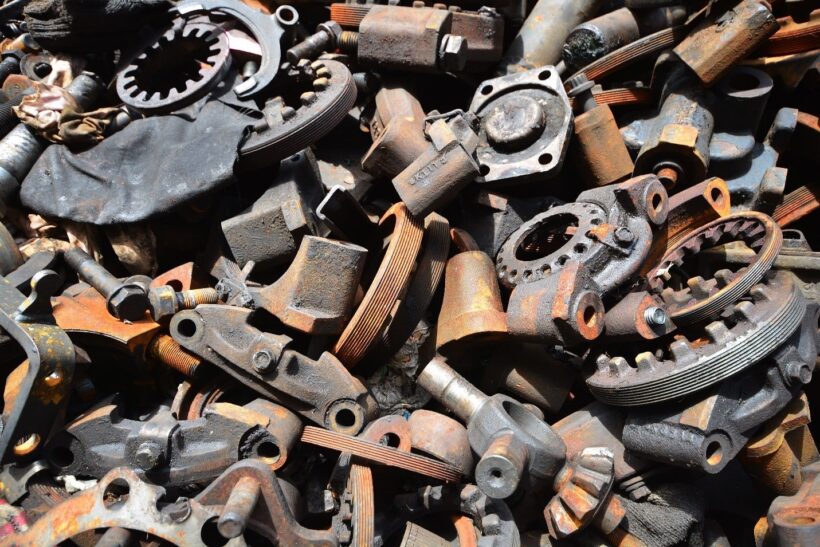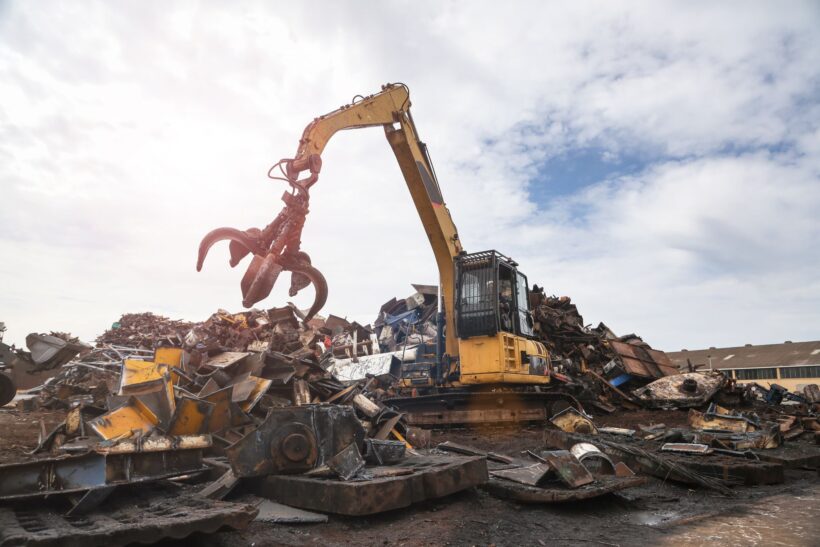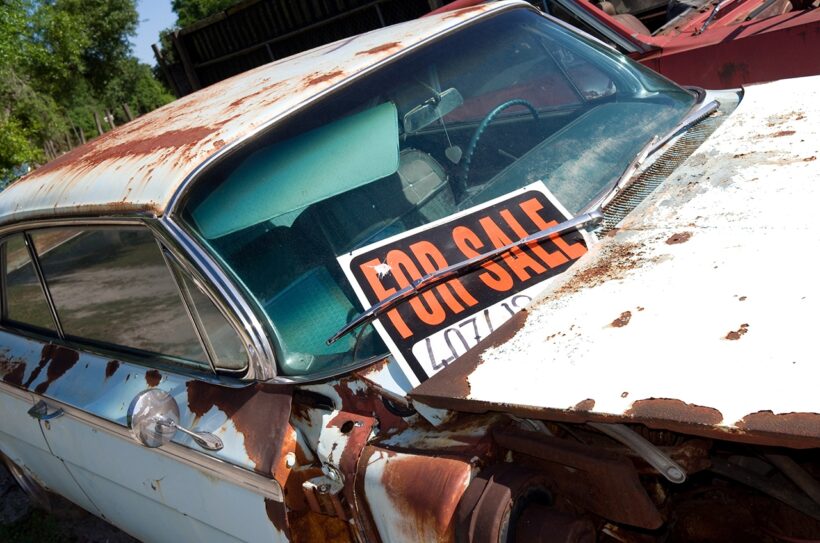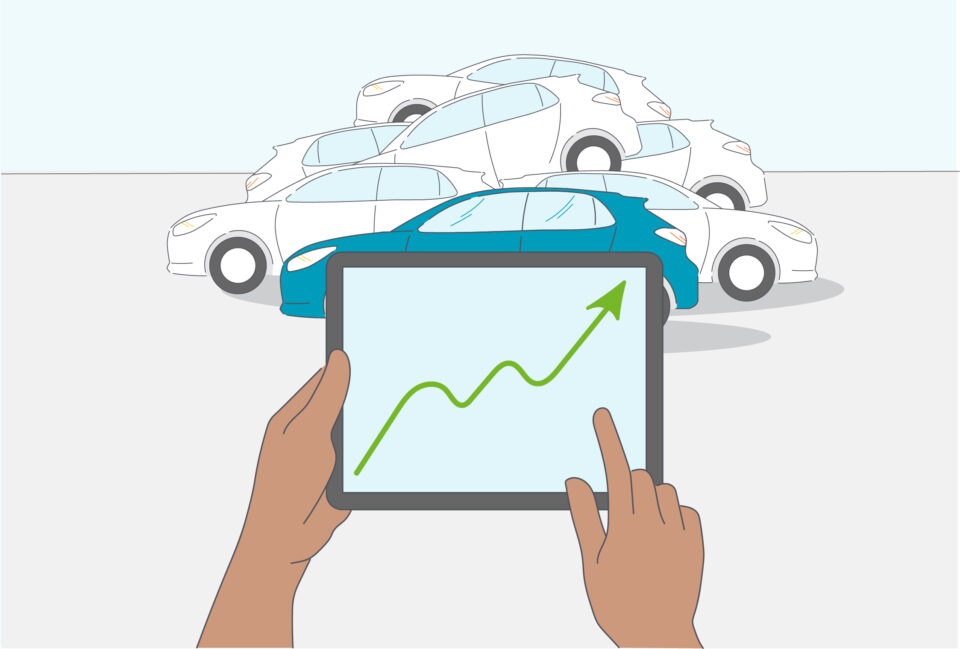In a world where sustainability and economic prudence often go hand in hand, the decision to recycle an old car as scrap metal emerges as a practical and environmentally conscious choice. For many, an aging vehicle represents not just a bundle of memories and experiences but also a potential source of income in its final days. As we delve into the realm of automotive recycling, it’s essential to recognize that the journey from driveway to scrapyard is influenced by a myriad of factors, each playing a pivotal role in determining the ultimate value of what once was a treasured possession.
This guide aims to illuminate the path to maximizing the returns from your scrap car, equipping you with the knowledge to navigate the complexities of the scrap metal market with confidence and acumen. Whether you’re looking to clear space, reduce environmental impact, or simply earn cash for your scrap car, understanding the process and market dynamics is crucial.
Current Scrap Metal Prices

One of the primary factors influencing the value of your scrap car is the current market price of scrap metal. The majority of a car’s weight is comprised of steel, and the demand for metal fluctuates based on market conditions. Keeping an eye on current scrap metal prices can give you a rough estimate of what to expect.
Weight of the Vehicle
Scrap cars are often valued based on their weight. The heavier your vehicle, the more metal it contains, which can positively impact its scrap value. This is one reason why larger vehicles, such as trucks and SUVs, generally fetch higher prices than smaller cars. When selling your old vehicle, be prepared to provide an accurate weight estimate.
Condition of the Car
The overall condition of your junker plays a significant role in determining its value. Cars that are still in relatively good condition may have salvageable parts, contributing to a higher valuation. If your vehicle has significant damage, missing parts, or is in a state of disrepair, its value as scrap may be lower. Removing non-metal components, such as plastics or rubber, before selling can improve the overall scrap value.
Year, Make, and Model
The make, model, and year of your car can impact its scrap value. Some manufacturers and models are known for using higher-quality materials, which can result in a higher scrap value. Additionally, older cars may have accumulated more wear and tear, potentially affecting the overall value. Research the make and model of your car to understand its reputation and how it may influence its scrap worth.
Local Scrap Yards and Recycling Facilities

The location of the scrap yard or recycling facility you choose can affect the price you receive for your car. Scrap metal prices can vary by region, and different yards may have different pricing structures or policies. It’s advisable to contact multiple local scrap yards to compare offers and select the one that provides the best value for your scrap car.
Catalytic Converters and Precious Metals
Some cars have valuable components, such as catalytic converters, that contain precious metals like platinum, palladium, and rhodium. These metals have market value, and certain vehicles, particularly hybrids and high-end models, may have more valuable catalytic converters. Before getting cash for your scrap car, inquire about the potential value of these components and whether you can sell them separately for a higher return.
Local Regulations and Emission Standards
In some regions, local regulations and emission standards may impact the value of your old vehicle. For instance, autos meeting specific emission standards or those with newer and more efficient engines may have a higher scrap value. Familiarize yourself with local regulations to understand how they may influence the value of your scrap car.
Ease of Transportation
The logistics scrap car removal and its migration to the recycling facility can also affect its value. If your vehicle is inoperable, you may need to arrange for towing services, which can incur additional costs. Some scrap yards offer free towing services, while others may charge a fee. Consider these logistics and associated costs when evaluating the overall returns on your junker.
Documentation and Ownership Proof
Having proper documentation is essential when trying to get cash for your scrap car. Ensure that you have the title, registration, and any necessary paperwork to prove ownership. Scrap yards often require these documents to comply with legal and environmental regulations. Having the right paperwork in order can streamline the selling process and potentially lead to a smoother transaction.
Negotiation Skills
Finally, your negotiation skills can impact the amount of money you receive for your scrap car. While the market conditions and your car’s intrinsic value play a significant role, being prepared to negotiate with scrap yards can help you secure a better deal. Don’t hesitate to shop around, compare offers, and negotiate for the best possible price.
Market Demand for Specific Parts
Beyond the general scrap value of a vehicle, the demand for specific car parts can significantly influence the return on a scrapped car. High-demand items such as engines, transmissions, and electronic components can fetch higher prices when sold separately. The market for these parts is driven by the needs of repair shops, individual car enthusiasts, and other vehicles requiring replacements. Factors such as rarity, compatibility with multiple models, and the condition of the part play crucial roles in determining their value. Engaging with online forums, specialty auto repair shops, and parts databases can provide insights into the current demand and help you identify the most valuable components of your scrap car.
Final Thoughts

Getting the most money for your old junker requires a combination of understanding market conditions, assessing your car’s specific attributes, and navigating the local landscape of scrap metal recycling. By considering factors such as current metal prices, scrap car removal, the weight and condition of your car, its make and model, and local regulations, you can maximize the returns. Take the time to research and explore your options to ensure that your final decision aligns with both your financial goals and environmental responsibility.

